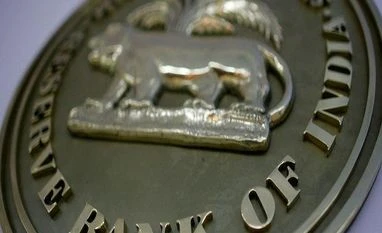Reserve Bank of India's Covid-19 relief package will provide some relief to financial institutions (FIs) in the next 12-24 months. However, it will largely be at the expense of postponing the recognition and resolution of underlying asset-quality problems, according to the rating agency Fitch.
There are growing indications that India’s latest wave of Covid-19 infections will add to risks among financial institutions (FIs) by sapping near-term momentum from the economic recovery, Fitch Ratings said in a statement.
“We expect the shock to economic activity from the latest wave of the pandemic in India to be less severe than in 2020, even though caseloads and fatalities are much higher. The authorities are implementing lockdowns more narrowly, and companies and individuals have adjusted behaviour in ways that cushion the effects," it added.
Nonetheless, indicators show that activity dropped in April-May, which is likely to delay the country’s recovery, and the number of newly recorded cases remains extremely high. There is a risk that disruption could persist longer and spread further than our baseline case assumes, particularly if lockdowns are introduced in more regions, or nationwide.
"We anticipate that the RBI may introduce additional measures to support the financial sector if indications of economic stress mount, such as credit guarantee schemes or a blanket moratorium like the one that ran from March-August 2020," Fitch said.
The agency, in April 2021, had argued that the surge in Covid-19 cases could add to headwinds facing India’s banks and non-bank financial institutions if it led to a resurgence in asset quality pressures. The latest data suggest that this risk is mounting.
Among the RBI’s measures announced on May 6, the reintroduction of a restructuring scheme for individuals, small businesses and MSMEs (micro, small and medium-sized enterprises) may be significant for FIs. It covers those which have not previously taken up restructuring. It also allows flexibility to extend the period of moratorium and/or the residual tenor by up to two years for previously restructured amounts.
The scheme, which runs until end-September 2021, may provide borrowers with additional time to resolve repayment stresses and allow financial institutions to spread credit costs over a longer period. Take-up under the last scheme, which ran to March 2021, was modest.
However, the economy at the time was posting a strong post-lockdown recovery. Since then, risks to small businesses have risen, particularly as many would have balance sheets that have weakened since 2020. Meanwhile, many individuals face medical bills that will add to strains on their income and savings.
The RBI has also allowed funding by small finance banks to smaller microfinance institutions (MFIs) for on-lending to be classified as priority-sector lending. This could support liquidity among those MFIs, some of whom have concentrated regional exposures that increase the risk of collection shortfalls as the virus spreads into India’s hinterlands this time around.
To read the full story, Subscribe Now at just Rs 249 a month
Already a subscriber? Log in
Subscribe To BS Premium
₹249
Renews automatically
₹1699₹1999
Opt for auto renewal and save Rs. 300 Renews automatically
₹1999
What you get on BS Premium?
-
Unlock 30+ premium stories daily hand-picked by our editors, across devices on browser and app.
-
Pick your 5 favourite companies, get a daily email with all news updates on them.
Full access to our intuitive epaper - clip, save, share articles from any device; newspaper archives from 2006.
Preferential invites to Business Standard events.
Curated newsletters on markets, personal finance, policy & politics, start-ups, technology, and more.
Need More Information - write to us at assist@bsmail.in
)